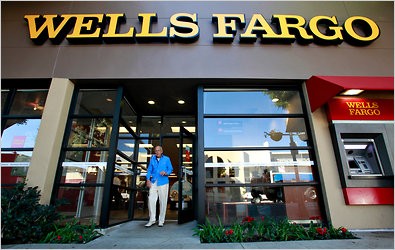In a move aimed at deterring scrutiny from the Justice Department, Wells Fargo –the largest home loan lender in the United States – has raised the minimum credit score requirements for Federal Housing Administration (FHA) loans.
In 2014, Wells Fargo had lowered credit score requirements to 600. Now borrowers will need to have a minimum score of 640 in order to be considered.
“We will be adding back the credit overlays so we make fewer loans that are close to [the FHA’s] most accommodative end of the credit spectrum,” said John Shrewsberry, Wells Fargo’s CFO, at the Barclays Global Financial Services Conference in New York. “Those are the loans that are going to default and those are the defaults loans that we’re going to be arguing about 10 years from now and we’re not going to do that again.”
Why Increase Credit Requirements?
Credit “overlays” are increased requirements an institution can make above and beyond the FHA’s guidelines. The FHA itself only requires a minimum credit score of 580.
Wells Fargo’s increase in score stems from an FHA proposal released in early September regarding loan-level certification. The proposal (which is open for public comment until Nov. 2), would require that lenders certify that loans backed by the FHA do not have any mistakes or material defects – and any loans found to have such defects would not be eligible for FHA insurance.
Many lenders have voiced concern that this proposal lacks clarity and could prompt lawsuits. If a bank were to certify a loan that the FHA later finds defective, the bank could be held liable for triple damages under the False Claims Act.
“The FHA came out earlier in September and informed people that they didn’t intend to make any meaningful changes to their loan-level certification,” Shrewsberry said. “They had gone out for comment, we gave them feedback, industry groups gave them feedback, consumer groups gave them feedback that they would need to do more and they chose not to.”
What Should Your Institution Do?
Most top U.S. institutions — including Bank of America, JPMorgan Chase, Citigroup and U.S. Bancorp — have already reached settlements with the FHA.
Others – including Wells Fargo, Quicken Loans, PNC Financial Services Group, Regions Financial and BB&T — are currently undergoing investigations into their FHA loans.
In light of these investigations, it’s prudent for an institution to be careful about the FHA loans it’s making. Investigations and lawsuits can obviously be costly, and these new measures from the FHA seem as if they could spell trouble for banks and other lenders should a mistake or defect creep through your oversight.
Are credit overlays the solution for your institution? If you have questions as to how your institution can best navigate these new trends, feel free to give Preiss&Associates a call.


